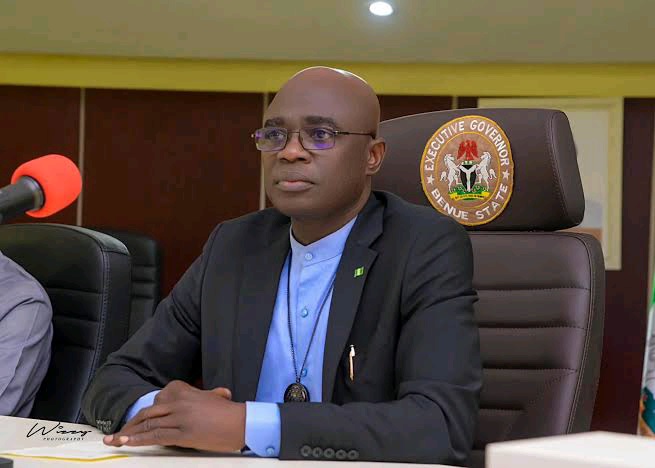By Ben Atonko
Many rural settlements in Benue State especially the borderline ones are ravaged and many more are at the risk of invasion by the callous and vicious Fulani terrorists.
Villages close to Nasarawa, Taraba States and Cameroun Republic are the most affected. Settlements in local government areas like Kwande, Katsina-Ala, Ukum, Logo, Guma, Gwer, Agatu and Otukpo are constantly under siege.
Many who are displaced from these local government areas are camped in towns like Jato-Aka, Otukpo, Daudu, Gbajimba, Yelewata, Agan, Naka and even the Benue State capital, Makurdi.
And the numbers continue to rise, making nonsense of the state government’s promise to return the displaced persons to their original places.
By now, politicians should have come to terms with the reality that the Fulani pestilence wreaking the unspeakable havoc on the hapless people would not abate. They must put aside their interest, think fast and come up with a well thought out plans to help, else the people will continue to perish.
Keeping people in camps is no good and no sustainable. Similarly, asking them to return to where they ran from without a proper and adequate security and economic plans is senseless. What is the wisdom in returning the displaced persons to the same old scruffy shacks and miserable thatched roof muddy huts? Moreso, the scorched earth tactic of the invaders leaves nearly nothing for the returnees to fall back on.
Some will not want to return for the trauma they suffered. The earlier government sets a workable and meaningful scheme for the people, the better. How can government do this?
Set up a resettlement committee comprising town planners, architects, builders, agriculturists, security men and other relevant professionals to work out modalities for opening up new settlements where, not only the displaced people but those scattered in hamlets and villages in the conflict prone areas can be resettled.
This should be driven, not by political party merchants and money guzzlers. It should be a responsibility for kind hearted people, people with clean record, people who have genuine love for humanity and Benue State.
This can be done, not by coercion. What the people lack is education. The settlement pattern must change so the villagers should be adequately informed about it. Attackers easily invade villages, wreak havoc and disappear because they were essentially unplanned. Where farmers for quest for large farmlands settle in remote places with no government presence must be done away with.
If government gives the people necessary information, open up new settlements with incentives for improved agricultural implements and practices, they will key in.
This is not entirely a new thing in Benue State. The first civilian governor of Benue State, the late Aper Aku initiated something like this. If not for the military interregnum that abruptly ended civilian rule, the Ber Agbum project probably would have served as a pilot scheme that would have been replicated in all the local government areas in Benue State.
Government can go back into the archives, and rework on this.
New agricultural settlements can be built with a better security and standard. Borno State government has done so much in the area of resettlement so the model used can be acquired for replication in Benue State.
Machineries, especially tractors can be made available at reduced cost to the farmers in the new settlements to encourage them to do their work with ease.
The new places should be properly planned and adequately fortified against the Fulani aggression. Locals should be continually trained on how to ward off attacks.
This is a project that will take more than a decade so the state assembly can give it the necessary legislative backing. It should be made such that succeeding governments would not come give different names to the plan and consign it to nothingness.
Every government of the day must execute it and do it well.
This is necessary considering the experience drawn from the Benue State Anti-open Grazing Law enacted in 2017. The law which aims to encourage the establishment of ranches to end open grazing with its attendant destruction of farmlands which precipitates crisis between farmers and herders is not enforced by the Hyacinth Alia-led administration for reason(s) best known to it.
The penchant for jettisoning all work of the previous government on account of partisanships, sectarianism and hate does not help this country at all and must stop.
Now, instead of the displaced persons reducing, the number increases and more camps are opened. The figure of 500,000 given by the State Emergency Management Agency (SEMA) last year which is considered conservative might have tripled because many more attacks have been recorded this year.
Lest we forget, many more who have relations have chosen not to live in camps but seek refuge in abodes of those willing to accommodate them. If the actual figures of those who have been uprooted from their homes on account of this crisis are produced, everyone would cringe.
Government must give serious consideration for settlement patterns. For too long, government has neglected this. Even in major towns where there appears to be some measure of development control, the unsightly mess is dreary.

